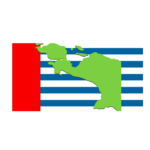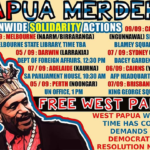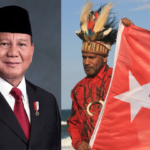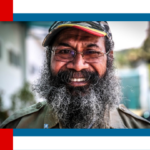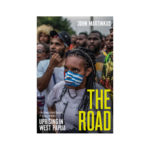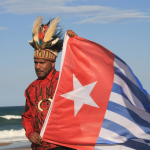The West Papuan Legislative Council Has Held Its Inaugural Meeting in Jayapura
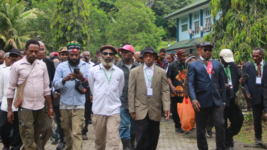
The 5 July 2025 inauguration of the West Papuan Legislative Council in West Papua’s Jayapura City “marked the rebirth of the West Papuan state”, remarked United Liberation Movement West Papua president Benny Wenda in a 10 July 2025 statement, adding that the globe “should respect” that it has “fulfilled all international requirements to be recognised as a government-in-waiting”.
According to reports, 350 members were inaugurated into the West Papuan Legislative Council on 5 July, along with thousands of regional council members, to represent the Indigenous peoples of the land across the seven customary regions that the ULMWP government recognises in West Papua: not the six provinces that the colonial Indonesian administration has imposed upon the region.
The establishment of the West Papuan government-in-waiting is the latest stage in a heightened push by the West Papuan liberation movement began with the September 2017 presentation of the West Papuan People’s Petition to the United Nations General Assembly, prior to the December 2020 founding of a provisional government and subsequent establishing of infrastructure on the ground.
These bounds towards independence, however, have also seen an intensification of Indonesian military attacks on occupied West Papuans, which began on villages in Nduga Regency, and continues to the present day, while the inauguration of alleged habitual war crimes perpetrator Prabowo Subianto as Indonesian president last year neither bodes well for the Melanesian region.
But as ULMWP Legislative Council chair Buchtar Tabuni led thousands of West Papuans, who’d just attended the first session of the West Papuan Legislative Council held in Jayapura City, in a procession through the main streets of one of the nation of West Papua’s largest cities, the message was clear: West Papua now has a government-in-waiting, and it does not want to wait too long.
A nation-in-waiting
“We have now completed our internal structure, implementing democracy even before winning independence,” said ULMWP president Benny Wenda, who currently lives in exile. “The world should respect the fact that we have fulfilled all international requirements to be recognised as a government-in-waiting,”
“We have our own provisional government, cabinet, laws, constitution and Green State Vision for a liberated West Papua,” the president-in-waiting continued, as he noted the commitment an independent West Papua has made to becoming a truly green state. “We also have a network of diplomatic representatives around the world, ready to engage with international diplomats.”
In the lead up to the Netherland colonisers 1962 departure, the West New Guinea Council, which was made up of West Papuans, celebrated their nation’s coming independence on 1 December 1961, Wenda recalled, with the raising of the Morning Star flag, and diplomats from the UK, France, Papua New Guinea, Australia and the Netherlands all bore witness to the ceremony.
As Wenda explains the roll out of the Legislative Council finishes the process of actualising an entire Indigenous government on the ground, which commenced with the first meeting of the West Papuan congress in November 2023.
This finishes the establishment of the legislative framework for an independent West Papua, as well as produces a body to legitimise this point on the global stage.
“With the 2020 provisional government, we built a legitimate governance structure and declared Indonesian presence in West Papua to be illegal,” Wenda underscored.
“With this inauguration, we have deepened our sovereignty on the ground. The ULMWP is now present at every level of West Papuan life.”
Never any choice
As it was leaving West Papua, the Netherlands handed control of the territory to the United Nations, as per the 1962 New York Agreement, and then in May 1963, it passed on interim administration to Indonesia, another country that had been colonised by the Dutch, who’d left in 1949. This handover was done on the basis that Jakarta let the West Papuans hold a referendum on independence.
Indonesia then held the 1969 UN-brokered “Act of Free Choice”, which saw the Indonesian military select 1,026 West Papuans to take part in, and via threat of gunpoint, they all voted to remain with Jakarta. So, the New York Agreement was never honoured, a fraud vote occurred and the 1.8 million West Papuans, or 70 percent of the population, who signed the petition, want a real referendum.
Since 1 May 1963, Jakarta has killed over half a million West Papuans, and, as Indonesia has been running a transmigration program into the Melanesian region since the 1970s, the 90 percent of the population that the locals, the West Papuans, had made up at that time, has now dropped down to comprising of less than 50 percent of the people living in the region.
The attacks on villages and displacement of local West Papuans has picked up since 2018, and this has been accompanied by the construction of the Trans-Papua Road project, which is a highway needlessly being rolled out that harms the West Papuan landscape and people. The attacks on people in the highlands and coastal regions across the nation of West Papua continue to this day.
The real choice awaits
Former Kopassus general and now Indonesian president Prabowo has a notorious reputation for the brutal manner in which he carried out operations in the former colony of East Timor and the continuing colony of West Papua.
Under the new president’s watch, the aerial bombing of West Papuan villages has heightened recently and the world’s largest act of deforestation is being committed on West Papuan soil in the name of sugarcane farming.
But so too has the West Papuan Legislative Council just met for the first time under Prabowo’s watch, and Wenda points out that for the United Liberation Movement of West Papua to be recognised as legitimate on the international stage has precedent, and he raised the Vanuatu People’s provisional government and the Palestine Liberation Organisation as examples of this.
ULMWP Legislative Council chair Tabuni said a fortnight ago that the 5 July plenary council meeting was an “historical milestone” that involved “the formation of a legitimate and representative legislative structure”, which has “strengthened the foundation of our government, as a nation ready for sovereignty”.
“The ULMWP is ready to play that role,” Wenda underscored. “We are ready to take our seat at the table, to help find a diplomatic political solution to the West Papuan issue through international political mechanisms.”


